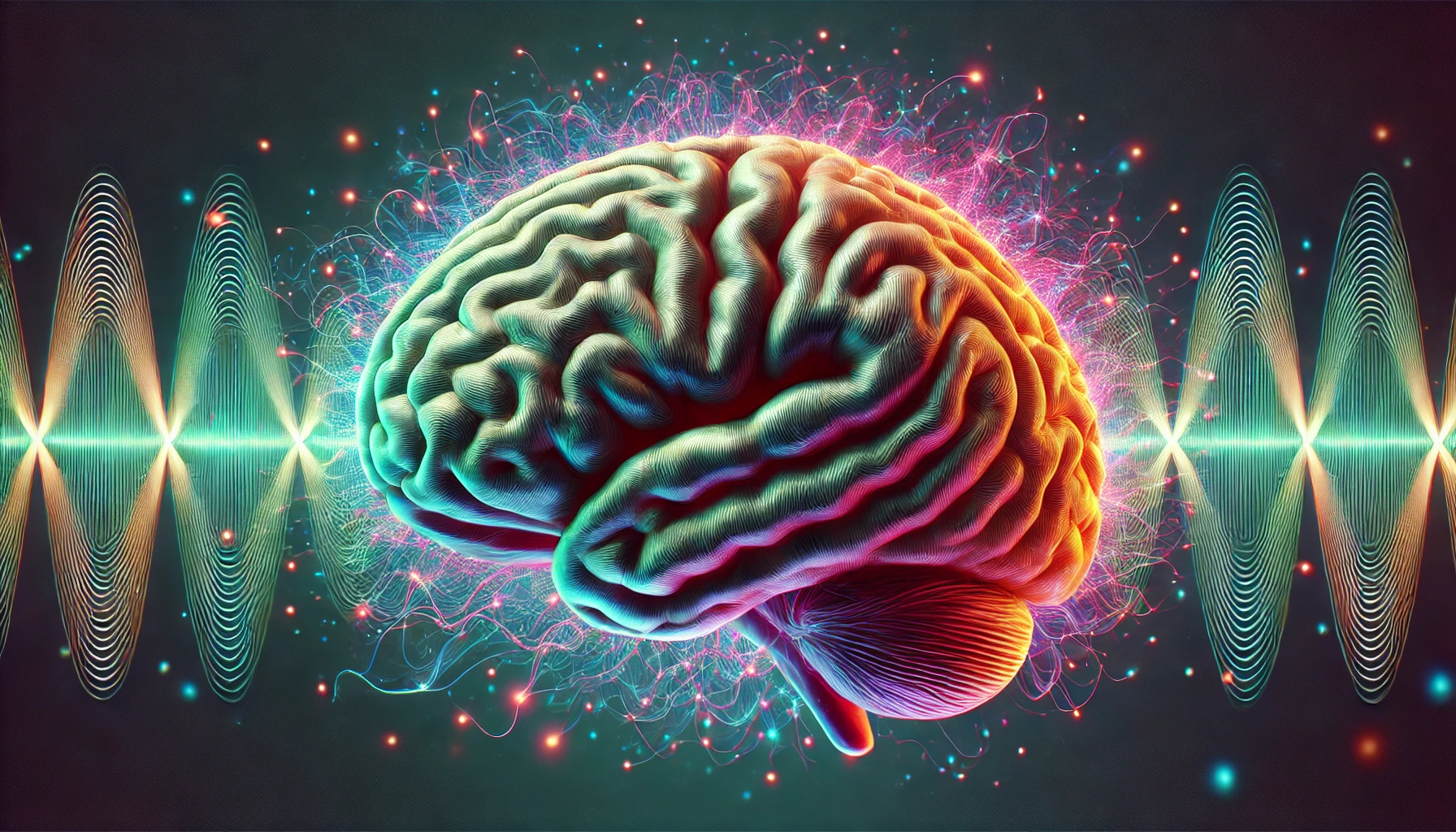Want to boost your muscle strength and brain power? Creatine supplements are your go-to. They’re popular among athletes and smart folks. But what do they really do? How do they help muscles and minds? What dosage is best? Let’s dive into creatine’s secrets, explore its perks, recommended doses, and more.
Key Takeaways:
- Creatine supplements are highly regarded for their ability to enhance muscle strength and cognitive function.
- Regular use of creatine supplements can lead to solid gains in muscle mass and improved athletic performance.
- Creatine plays a vital role in ATP production, maximizing energy reserves for intense workouts and cognitive tasks.
- It’s important to follow proper dosage protocols and understand the different types of creatine supplements available.
- Real users have reported significant benefits from incorporating creatine into their fitness and wellness routines.
What Makes Creatine a Must-Try Supplement?
Let’s dive into why creatine is a top supplement choice. We’ll look at its key roles, like helping with energy and muscle work. We’ll also see how it boosts muscle build and brain power. Adding creatine to your health and workout plans offers great benefits.
Revealing the Roles of Creatine in the Body
Creatine is key for making energy in our bodies. It helps make adenosine triphosphate (ATP), which cells use for power. With more creatine in muscles, you can up your energy-making game. This can make your athletic skills better.
Creatine is also important for muscle work. It keeps high-energy phosphates ready to go for intense exercises. This can help muscles work harder and get stronger. Overall, creatine makes you stronger and more powerful.
The Journey to Enhanced Muscularity and Cognition
Creatine is great for building muscle. It raises creatine levels in muscles, helping with protein creation. This is important for muscle repair and growth. You’ll see more muscle size, strength, and stamina.
Creatine’s perks aren’t just for muscles. It also helps your brain. It plays a part in making phosphocreatine, which keeps the brain energized. Taking creatine can boost your thinking skills, like memory and focus.
| Benefits of Creatine | Muscle Growth | Cognitive Enhancement | Creatine Supplementation |
|---|---|---|---|
| Increased muscle size, strength, and endurance | Enhanced protein synthesis | Improved memory and processing speed | Optimized brain energy levels |
| Improved athletic performance | Enhanced muscle contraction | Increased mental focus | Supports brain health |
| Enhanced recovery and reduced muscle fatigue | Higher availability of phosphocreatine |
Demystifying Creatine: Definitions and Functions
In this section, we’ll clearly define creatine and discuss its roles in our bodies. Creatine is found in certain foods like meat and fish. Our bodies also make it from three amino acids. It’s mainly stored in our muscles and helps with energy use.
Creatine’s main job is to fuel ATP, our cells’ energy source. When we do quick, intense activities like lifting weights, we use up ATP fast. Creatine gives its phosphate group to help make more ATP, giving us more energy.
With more ATP thanks to creatine, we can boost our performance in activities that are short but very intense. It helps increase strength, power, and speed. That’s why many athletes and people who love fitness use creatine.
Creatine also helps muscles grow larger and look fuller by increasing water content in muscle cells. This leads to bigger muscles and hypertrophy.
The way creatine works to bring these benefits is still being researched. It might help with protein building, reducing muscle damage, and storing more glycogen.
“Creatine is like the fuel for your muscles. It boosts energy and aids muscle growth. Taking supplements may help you push further in your exercises.”
In the coming sections, we’ll dive deeper into how creatine can impact muscle strength, size, and your overall athletic ability. We’ll also look at its effects on energy and brain function. By the end, you’ll know all about the benefits and things to think about when adding creatine to your health and exercise routine.
Creatine’s Impact on Muscle Strength and Growth
Creatine supplements can greatly boost muscle strength and growth. Adding creatine to your fitness plan leads to more muscle mass and strength.
Using creatine can cause your body to hold more water. This might sound bad, but it actually helps. Your muscles can look bigger and perform better because of this extra water.
Seeing how creatine changes your muscles over time is key. You can watch your muscles grow each week. This helps you see if creatine is working and if you need to change your workout plan.
Keeping track of your gains helps keep you motivated. It lets you see the real rewards of your effort and dedication to getting stronger and more muscular.
Energy Reserves and Performance: The ATP-Creatine Connection
To understand how creatine boosts athletic performance, we need to look at its role with energy in our bodies. This involves the energy molecule ATP and how creatine helps make it.
ATP is what powers our cells during heavy workouts. But, our bodies can only store a small amount of ATP. This runs out fast with intense exercise.
Creatine helps here by making more ATP. It’s made in the liver and kidneys and adds energy to our bodies. This means we can exercise hard for longer.
By replenishing ATP levels, creatine supplementation optimizes energy production and improves performance in high-intensity activities.
Creatine makes us stronger and more powerful, especially in quick, intense activities like lifting weights, running fast, or jumping. It boosts our energy and lets us do better in sports.
To see how creatine works with ATP, check out this image:
The picture shows how creatine helps make more ATP. This gives us the energy to perform at our best.
Creatine not only boosts energy but also helps push our limits in sports. It lets us achieve our fitness goals.
Benefits of Creatine for Performance Enhancement
| Benefit | Description |
|---|---|
| Increased muscle strength and power | Creatine supplementation has been linked to improvements in muscle strength and power, enabling individuals to lift heavier weights and generate more force during physical activities. |
| Enhanced muscular endurance | By replenishing ATP levels and optimizing energy reserves, creatine supplementation allows muscles to perform at a higher intensity for a longer duration, delaying the onset of fatigue. |
| Faster recovery between bouts of exercise | Research suggests that creatine supplementation can expedite the recovery process by reducing muscle damage and inflammation, leading to faster recuperation and improved training capacity. |
| Improved performance in high-intensity activities | Creatine has been shown to have a significant impact on activities that require short bursts of intense effort, such as sprinting, jumping, and rapid muscle contractions, resulting in overall enhanced performance. |
This table shows how creatine helps athletes do better. It helps us go beyond our normal limits and achieve great things in sports.
Pushing Past Plateaus: Creatine in Athletic Performance
In sports and fitness, athletes constantly strive to beat their previous bests. They look for effective ways to boost their performance. Creatine supplementation is a key tool for this goal.
Maximizing High-Intensity Workouts
For tough workouts like weightlifting or sprinting, creatine plays a vital role. It increases muscle strength, enhancing performance in demanding training sessions. Creatine boosts energy, helping athletes push harder, overcome challenges, and reach new heights.
Aiding Recovery for Consistent Training
Recovery is essential for steady training and peak performance. Creatine significantly aids in this process. It speeds up muscle recovery, lowers muscle damage, and eases soreness. This lets athletes recover quickly and keep up with their training plans.
Adding creatine to your routine can break through plateaus, improve workout benefits, and aid in recovery. Remember, though creatine is well-studied and effective, results can differ. Always check with a healthcare expert or dietitian to use creatine right and reach your goals.
Nourishing the Brain: Creatine’s Cognitive Benefits
Exploring creatine, it’s key to see its brain benefits. It’s not just for physical gains but boosts the mind too. It enhances memory, quick thinking, and focus. Let’s look into this more.
Enhancing Memory and Processing Speed
Creatine helps both short and long-term memory. It refuels the brain’s energy for better function. This makes remembering stuff and doing mental tasks easier.
It also speeds up how fast we think. Creatine makes brain communication quick. This helps in fast thinking and making decisions, like solving problems or doing many things at once.
Creatine: A Mental Boost for Intense Focus
Creatine also gives a mental focus boost. It feeds the brain energy for clear thinking and attention. This is great for hard tasks or when you need to really concentrate.
If you’re a student, a professional, or anyone wanting to think better, creatine is useful. It feeds your brain for top mental ability. It helps in reaching your highest thinking level.
We will next talk about creatine’s safety, looking into any worries about its use and possible bad effects. Keep watching!
Exploring the Safety Profile of Creatine
When adding supplements to our diets, safety comes first. This part will look into creatine’s safety and cover common concerns. It will help us see how safe creatine truly is.
Creatine is safe to take if you follow the right dose. Like anything else, knowing the possible side effects is crucial for safe use.
Side effects of creatine: Most people find creatine easy to handle, but some might have mild side effects. These include:
- Gastrointestinal issues like bloating, nausea, and diarrhea
- Weight increase from holding more water
- Cramping
These issues rarely happen and mostly if you take too much creatine. To cut down side effect risks, stick to the dose guide. Also, see a doctor if you have health worries.
Dosage advice: Right creatine doses depend on your weight and how much you work out. A usual method is to start with 20 grams a day for the first week. Then, you keep up with 3-5 grams a day.
Or, some might begin with the lower dose right away. It’s key to see what dose suits you, thinking about your workout goals and how your body responds.
To safely use creatine, you should:
- Stick to the recommended doses: Follow the advised amount for starting and keeping up, avoiding too much creatine.
- Talk to a healthcare expert: If unsure or if you have health issues, get advice from a doctor before you start with creatine.
- Drink lots of water: Staying hydrated helps prevent dehydration and keeps you healthy while on creatine.
- Watch how your body reacts: Notice any changes once you start creatine. Adjust the dose if needed. Stop and see a doctor if you face any negative effects.
Knowing about creatine’s safety and following guidelines helps you use it right. This way, you enjoy its perks safely as part of your health and workout plan.
Creatine Intake Protocols: Dosage and Timing
Understanding proper intake protocols is crucial for the benefits of creatine. I will guide you on dosage and timing to optimize your intake.
To Load or Not to Load: Creatine Dosing Strategies
Deciding on a loading phase is important when starting creatine. A loading phase involves taking 20 grams daily in four 5-gram doses for 5-7 days. After this, a maintenance dose of 3-5 grams daily helps keep creatine levels up.
But, new studies show a loading phase may not be needed. Taking 3-5 grams daily can also increase muscle creatine levels over time. This method avoids a loading phase and makes taking creatine simpler.
On Cycle and Off: Managing Creatine Usage
Creatine supplementation involves cycling, which means taking breaks from it. This helps your body respond better to creatine when you start again. Cycling aims to prevent your body from getting too used to creatine.
There are many ways to cycle creatine, from a few weeks to several months. Some don’t cycle and take creatine continuously. Whether to cycle depends on your personal goals and preferences.

| Creatine Intake Protocol | Advantages | Disadvantages |
|---|---|---|
| Loading Phase |
|
|
| Consistent Dose |
|
|
| Cycling |
|
|
Table: Comparison of Creatine Intake Protocols
Consistency is key with creatine intake protocols. Whether loading or cycling, regular use is important for full benefits. Always talk to a healthcare professional to find the best protocol for you.
A Look at Different Types of Creatine Supplements
Not all creatine supplements are the same. There are different types to consider for your fitness goals. In this section, we’ll look at three popular kinds: creatine monohydrate, creatine ethyl ester, and creatine hydrochloride. Each one offers unique benefits that could impact your supplement use.
1. Creatine Monohydrate:
Creatine monohydrate is the most studied type of creatine. It’s known for boosting muscle strength and power. Athletes and fitness buffs often prefer it. It’s easily absorbed by your body and won’t break the bank.
2. Creatine Ethyl Ester:
Creatine ethyl ester is a tweaked form of creatine. It’s meant to be absorbed better and reduce side effects like bloating. It quickly gets into muscle cells, so many choose it for fast results.
3. Creatine Hydrochloride:
Creatine hydrochloride has better solubility and absorption than monohydrate. It’s great for those who have stomach issues with other creatines. Since it’s highly concentrated, you need less of it for the same effect.
Different creatines work better for different people. You might like creatine monohydrate more than others, or find a favorite in another type. It’s wise to try out and see what works best for you.
Knowing the differences helps you choose the right creatine. Always talk to a doctor or dietitian before adding supplements to your routine.
Comparing Creatine with Other Popular Supplements
The fitness world is full of supplements, each promising unique benefits. We’ll compare creatine to other popular choices. We’ll show what makes it special and different.
Why Creatine Stands Out Among Its Peers
Creatine is a top pick for athletes and fitness fans. It’s backed by solid research, supporting muscle and brain health. It boosts strength and power, making it essential for better athletic performance.
Creatine is unique because it helps both muscles and brains. It’s great for those wanting to boost both physical and mental abilities.
Creatine is also easy to get and won’t break the bank. It’s a budget-friendly option for everyone, regardless of their fitness journey or wallet size.
Combining Creatine with Other Nutrients for Optimal Results
On its own, creatine is strong. But, it’s even better with other nutrients. This allows for tailored supplementation to fit personal health goals.
Mixing creatine with protein helps muscles recover and grow. Protein helps fix muscles, and with creatine, they work better together. This mix optimizes muscle building.
Adding carbs to creatine boosts its effects. Carbs give you energy for workouts, making creatine work better. This combination maximizes creatine’s benefits.
Omega-3s and creatine together can improve brain health. Omega-3s boost brain function, and with creatine, can sharpen focus and memory. Customizing your supplements helps achieve the best results for your goals.
| Supplement | Creatine | Other Supplements |
|---|---|---|
| Benefits | Effective for muscle growth and cognitive enhancement | Vary depending on the supplement, may focus on specific areas such as energy, endurance, or recovery |
| Research | Extensive body of research supporting its efficacy | Varies depending on the supplement, some may have limited scientific backing |
| Cost | Relatively inexpensive and widely available | Costs may vary significantly depending on the specific supplement |
| Combination Potential | Can be combined with other supplements to enhance specific benefits | May have limited compatibility with other supplements |
Creatine: Diving Into the Latest Research and Findings
We’ll look into the newest findings on creatine. We’ll check out how it helps with muscle strength, brain power, and sports performance. These insights come from recent studies.
Real People, Real Results: User Testimonials
Let’s see what real users say about creatine. They share how it’s helped them in fitness and health.
“Creatine has boosted my strength and endurance. I lift more and make quicker muscle gains.” – Mark, 28
“It’s made a big difference in my soccer playing. I’m faster and more powerful on the field.” – Sarah, 25
“It’s helped my focus and mental energy as a student. I stay sharp longer.” – Alex, 22
These stories show creatine’s variety of benefits. From better muscle strength to sharper thinking, users share their positive experiences.
Science backs up these personal stories. Research shows creatine is good for fitness and health. It helps with muscle growth, brain function, and better sports performance.
We mix user stories with latest studies. This gives a full picture of creatine’s benefits.
Customizing Creatine Use Across Demographics
Creatine supplementation is not a one-size-fits-all situation. It’s important to tailor creatine use to meet the unique needs of various groups. This includes considering the age, gender, and fitness level of each person.
For young people doing a lot of physical activities, a higher dose of creatine can help. It supports muscle growth and provides energy. Older adults might need less creatine. This helps them keep muscle mass and stay healthy.
The needs of women and men can differ due to body types and fitness goals. Tailoring creatine usage for each gender helps in achieving better results. Things like body composition and hormone levels play a part in this.
Fitness levels influence how you should use creatine. Beginners might do well with a loading phase to boost muscle creatine. More experienced athletes could need just maintenance doses to keep their muscle gains.
To show how creatine use can be customized, here’s a table. It shows the recommended dosages for various groups:
| Demographic | Recommended Dosage Range |
|---|---|
| Young adults (18-25 years) | 20-25 grams per day during the loading phase, followed by 3-5 grams per day during the maintenance phase |
| Older adults (above 50 years) | 2-5 grams per day during the maintenance phase, depending on individual needs and health status |
| Active women | 10-15 grams per day during the loading phase, followed by 3-5 grams per day during the maintenance phase |
| Active men | 20-25 grams per day during the loading phase, followed by 5-10 grams per day during the maintenance phase |
| Beginners | 20-25 grams per day during the loading phase, followed by 3-5 grams per day during the maintenance phase |
| Experienced athletes | 5-10 grams per day during the maintenance phase |
By customizing creatine use, people from different groups can get the most out of their supplement. This approach helps everyone reach their fitness and health goals. Creatine becomes an effective tool for improving strength, performance, and overall wellness.

Conclusion
The perks of taking creatine are impressive. We saw that creatine boosts both muscle power and brain power. It helps people reach their highest potential when added to their health and fitness plans.
Taking creatine the right way is key. Follow the dose instructions and safety tips carefully. This way, you get all the good stuff without the bad.
Creatine is awesome for growing muscles and saving energy. It also helps athletes do better and makes your brain sharper. Knowing all about creatine lets people use it the best way for their own goals.
If you’re working hard in sports or need to focus better, creatine could really help. With its solid benefits and easy-to-find nature, it’s a top choice for boosting your physical and mental game.



